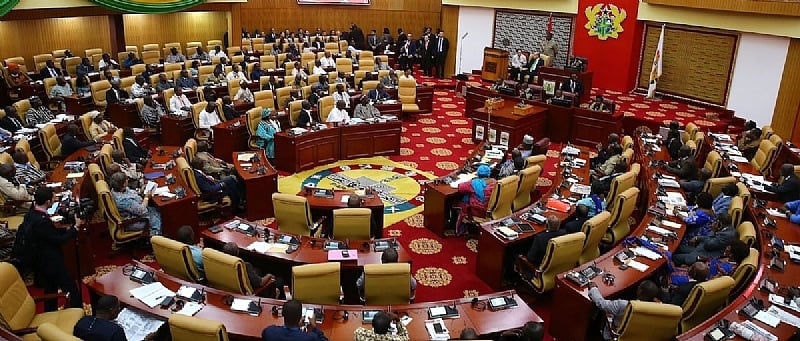The proposed Social Protection Bill, 2025, a cornerstone of the Mahama administration’s social welfare agenda, has encountered significant resistance from the Minority in Parliament, leading to a standstill in its legislative progress. The bill aims to establish a dedicated Social Protection Fund to ensure consistent and adequate financing for crucial social welfare programs, including LEAP, the Ghana School Feeding Programme, Basic Education Capitation Grants, and NHIS exemptions. Beyond securing funding, the bill seeks to create a robust legal framework to guarantee equitable access to social services for marginalized communities nationwide. This legislation represents a significant effort to consolidate and strengthen the existing social safety net, aiming to provide a more sustainable and effective approach to poverty reduction and social development.
The contention arose during the bill’s third reading on Wednesday, July 30th, when the Minority raised a constitutional point of order concerning the lack of a quorum. First Deputy Minority Whip Habib Iddrisu argued that proceeding with the vote in the absence of the required number of members would constitute a breach of parliamentary procedure and render the resulting law constitutionally flawed. He demanded an immediate halt to the proceedings until the quorum was met, emphasizing the importance of adhering to established legislative protocols. This action effectively blocked the bill’s passage, highlighting the deep divisions between the ruling majority and the opposition on this critical piece of legislation.
The Majority, however, rejected the Minority’s claims, accusing them of employing dilatory tactics to obstruct a bill designed to benefit the most vulnerable segments of society. Second Deputy Majority Whip Richard Acheampong characterized the Minority’s walkout as a politically motivated maneuver aimed at undermining the government’s social welfare initiatives. He countered that the Minority’s actions were detrimental to the interests of the very people the bill intended to support, framing their opposition as an act of political gamesmanship rather than a genuine concern for constitutional procedures. This clash of perspectives underscores the broader political tensions within the Ghanaian parliament and the challenges in achieving consensus on vital policy matters.
The impasse created by the opposing viewpoints ultimately forced the Speaker to adjourn the session, leaving the fate of the Social Protection Bill hanging in the balance. This delay represents a significant setback for the Mahama administration’s social welfare agenda, particularly its efforts to secure long-term financing for pro-poor programs amid mounting economic pressures. The failure to pass the bill not only delays the implementation of crucial social interventions but also raises questions about the government’s ability to effectively address the growing needs of vulnerable populations. The political stalemate jeopardizes the timely delivery of essential social services, potentially exacerbating existing inequalities and hindering progress towards broader social development goals.
The controversy surrounding the Social Protection Bill reveals a deeper struggle over the direction of social policy in Ghana. While the government emphasizes the bill’s importance in strengthening the social safety net and ensuring equitable access to essential services, the opposition raises concerns about the legislative process and the potential implications for the country’s constitutional framework. This disagreement reflects broader ideological differences regarding the role of government in social welfare provision and the appropriate mechanisms for achieving social equity. The debate also highlights the challenges of navigating complex political landscapes and building consensus on critical policy issues, particularly when they intersect with broader economic and social concerns.
The unresolved status of the Social Protection Bill leaves a cloud of uncertainty over the future of social welfare programs in Ghana. The delay raises questions about the government’s capacity to deliver on its promises to improve the lives of vulnerable citizens and underscores the critical need for bipartisan cooperation to address pressing social challenges. The outcome of this legislative battle will have far-reaching consequences for the well-being of millions of Ghanaians and will shape the trajectory of social policy in the country for years to come. It remains to be seen whether the contending parties can find common ground and move forward with a solution that effectively addresses the needs of the most vulnerable while adhering to constitutional principles and maintaining the integrity of the legislative process.


